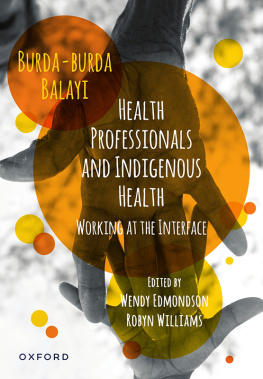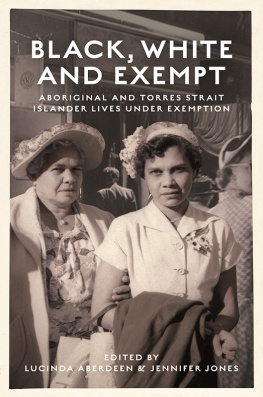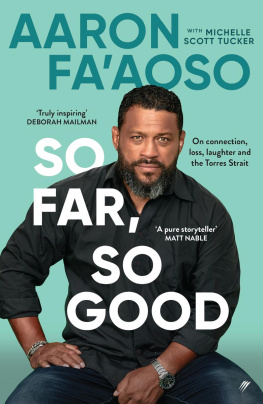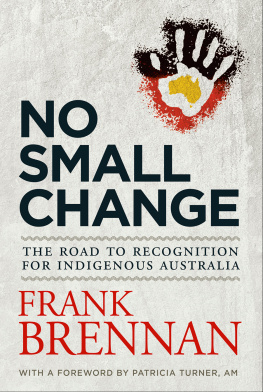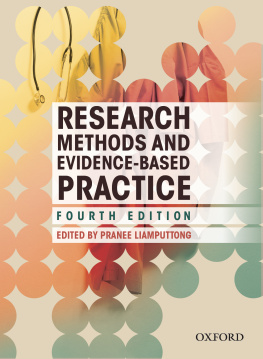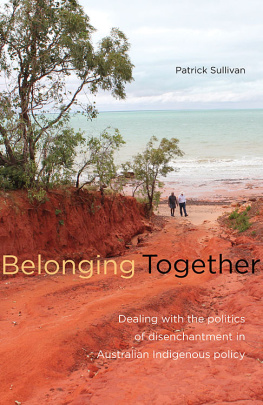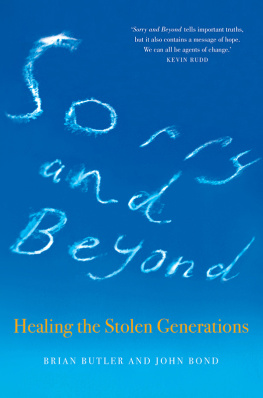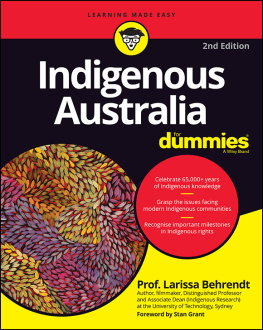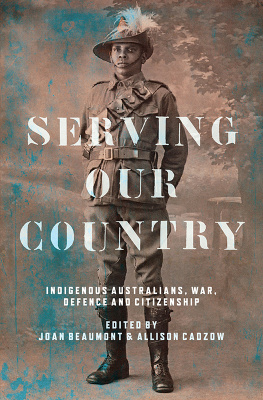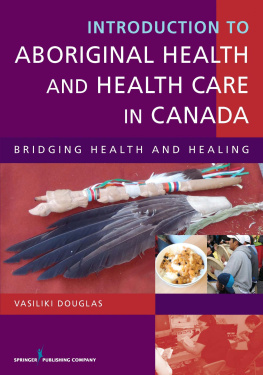Burda-Burda Balayi
Health Professionals and Indigenous Health
Burda-Burda Balayi
Health Professionals and Indigenous Health
Working at the interface
EDITED BY
Wendy Edmondson
Robyn Williams


Oxford University Press is a department of the University of Oxford. It furthers the Universitys objective of excellence in research, scholarship, and education by publishing worldwide. Oxford is a registered trademark of Oxford University Press in the UK and in certain other countries.
Published in Australia by
Oxford University Press
Level 8, 737 Bourke Street, Docklands, Victoria 3008, Australia.
Wendy Edmondson and Robyn Williams 2022
The moral rights of the authors have been asserted
First published 2022
All rights reserved. No part of this publication may be reproduced, stored in a retrieval system, or transmitted, in any form or by any means, without the prior permission in writing of Oxford University Press, or as expressly permitted by law, by licence, or under terms agreed with the reprographics rights organisation. Enquiries concerning reproduction outside the scope of the above should be sent to the Rights Department, Oxford University Press, at the address above.
You must not circulate this work in any other form and you must impose this same condition on any acquirer.


ISBN 9780190327194
Reproduction and communication for educational purposes
The Australian Copyright Act 1968 (the Act) allows educational institutions that are covered by remuneration arrangements with Copyright Agency to reproduce and communicate certain material for educational purposes. For more information, see copyright.com.au.
Edited by Susan Keogh
Typeset by Integra Software Services Pvt. Ltd
Proofread by Pete Cruttenden
Indexed by Mary Russell
Printed in China by Golden Cup Printing Co., Ltd.
Disclaimer
Aboriginal and Torres Strait Islander peoples are advised that this publication may include images or names of people now deceased.
Links to third-party websites are provided by Oxford in good faith and for information only. Oxford disclaims any responsibility for the materials contained in any third-party website referenced in this work.
CONTENTS
LORRAINE MULLER, HEATHER BURTON AND SAMANTHA LUDWIG
WENDY EDMONDSON
ROBYN WILLIAMS
DAVID PAUL AND ANDREA MCKIVETT
TANYA SCHRAMM AND MAGGIE WALTER
WENDY EDMONDSON, SUMMER MAY FINLAY, DAVID COOPER AND ROBYN WILLIAMS
PAT DUDGEON, KATE DERRY, MONIQUE PLATELL, GRAHAM GEE AND HELEN MILROY
WENDY EDMONDSON
JUANITA SHERWOOD WITH OLIVIA NIGRO
PREFACE
The aim of this book is to explore and challenge the paradigm that essentialises Aboriginal and Torres Strait Islander cultures and health through Western frameworks. The intention is to transform the deficit narrative and problematic constructions of Aboriginal and Torres Strait Islander peoples to a strengths-based discourse that promotes positive health outcomes. While the text may raise some discomfort, it will be balanced by positive narratives and strengths-based strategies for health professionals. Through a decolonising and deconstructive approach, the book will explore issues of reconciliation, truth-telling and shared futures for both Aboriginal and Torres Strait Islander peoples and non-Indigenous people.
Discussion of race, culture and identity will be undertaken in the context of colonial power, ongoing oppression, and Western social and scientific constructs. Other theories, such as critical race theory and critical whiteness theory, will either be examined separately or embedded in the text, depending on context.
The text presents rich learning opportunities for students, academics and health professionals. Tools and strategies for exploring and reflecting on the topics have been recommended, case studies showcase both ineffective and successful interactions, and reflective exercises provide opportunities for readers to explore themes using a new, or refocused, lens.
is about understanding the way specific cultures inform the creation of identity and sense of self, and how to develop skills to interact respectfully and positively with cultures other than your own. The focus of this chapter is the distinction between Aboriginal and Torres Strait Islander and non-Indigenous peoples of Australia. Appreciating how Aboriginal and Torres Strait Islander lives as Australians have been racialised in the colonisation process is a necessary step towards accepting and respecting differences between cultures, and the value this can give at a personal and professional level.
examines key topics relating to the settler colonial history of Australia. These topics include pre-colonisation cultures and lifestyles of Aboriginal and Torres Strait Islander peoples, and the impacts of colonisation from first contact with the British, subsequent frontier conflicts and key government policies until the 1967 Referendum. The role of history-telling, and how and why historical narratives are told from diverse perspectives, are then explored. The last section of the chapter investigates some of the discourse and disagreements between historians in the narration of Australias settler colonial history, known as the history wars.
provides an overview of cultural safety as a model of health care in general, and specifically for Aboriginal and Torres Strait Islander peoples. The history, contention, criticisms of, and necessity for, cultural safety are discussed, along with related topics of racism, white privilege, discrimination and power. The principles of cultural safety, including social justice, trust, respect, self-awareness and self-reflection, are discussed in relation to negotiating culturally safe practice. Robust frameworks for organisations and systems are also highlighted as key components of cultural safety.
explores the journey of health professionals in building the skills and capabilities in being able to contribute meaningfully to Aboriginal and Torres Strait Islander health and well-being. Given the continuum of learning that is the reality of Indigenous health capacity development, the health-care professionals capability development begins at university and extends into the health-care setting as a lifelong learning journey.
begins with a critical examination of the Closing the Gap policy framework, particularly its flaws, and how it contributes to the deficit discourse about Aboriginal and Torres Strait Islander peoples. The authors then turn to a deeper understanding of the Closing the Gap Refresh, and how the privileging of Aboriginal and Torres Strait Islander voices to facilitate meaningful change needs to occur. Challenges with the current approaches to data in relation to Aboriginal and Torres Strait Islander peoples are also interrogated. The final section of the chapter addresses the crucial importance of Aboriginal and Torres Strait Islander data sovereignty and governance to empower Aboriginal and Torres Strait Islander peoples and to facilitate the achievement of their aspirations.

